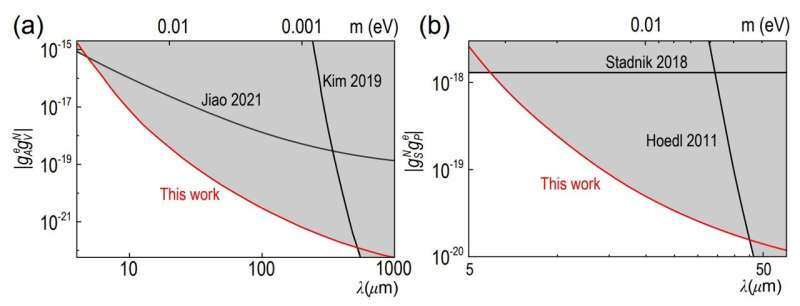Searching for new particles using quantum sensors

In a recent study published in the journal National Science Review, a laboratory search for exotic spin-dependent interactions was conducted with an ensemble-NV-diamond magnetometer. New experimental constraints on two types of exotic interactions were established at the micron scale.
The Standard Model of particle physics cannot explain some of the observational phenomena in current cosmic astronomy, such as dark matter and dark energy. Scientists believe that there may be new particles beyond the Standard Model that could serve as a medium for propagating a new type of exotic spin-dependent interaction.
In recent years, the research team has developed the use of quantum sensors in diamonds to precisely measure the exotic interactions, so as to search for possible new particles in the laboratory. In this work, the researchers expanded from a single quantum sensor in diamond to ensemble quantum sensors, greatly improving the detection sensitivity.
They realized a laboratory test of exotic spin-dependent interactions between polarized electrons and unpolarized nucleons, and established new experimental constraints at the micrometer scale.
This work demonstrated the unique advantages and potential of diamond quantum precision measurement technology in exploring fundamental physics problems, such as new particles and new interactions.
More information: Hang Liang et al, New Constraints on Exotic Spin-Dependent Interactions with an Ensemble-NV-Diamond Magnetometer, National Science Review (2022). DOI: 10.1093/nsr/nwac262
Provided by Science China Press





















